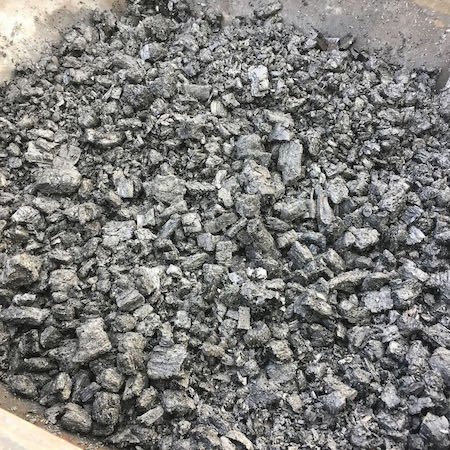Together with increasing biodiversity, a main objective of the farm is working towards carbon positive food production. Work is ongoing in how to measure and follow up soil organic content.
The farm implements a variety of soil conservation measures including having a large area of the farm dedicated to forest or agroforestry read more. While aiming to no-till practices in the vegetable garden to avoid carbon emissions connected to tilling, there is still some shallow tilling in some areas where perennial weeds are not under control. A main limiting factor for no-till is producing enough mulch for covering an area of almost 3000m2 without importing external compost/materials.
The main mulch used is Ramial Wood Chips based on forest waste, mainly alder coppice. Tests are ongoing inoculating wood chips with Stropharia rugosoannulata for mushroom production.
Biochar is a way of capturing carbon long term in the soil, and at the same time increasing the ability of the soil to keep nutrients and water, which is highly needed in our sandy soil.
We have a kon-tiki kiln built from an old fertiliser spreader. We use the kiln to transform wood waste (bits too big/small/crooked for firewood or chipping for ramial) to biochar. The kon-tiki kiln is cheap, simple, and it works very well, a problem is that the heat is just wasted and of course a part of the carbon is emitted during the firing. The biochar is either used as part of animal bedding to capture nutrients or loaded with nettle tea. We make around 1-2 cubic meter per year.

While increasing the carbon capture in the soil and living plants is our main goal, eliminating the carbon emitted is still needed. While some tools are already electrified (chainsaw, trimmer…) the farm still uses around 40 liters of gasoline per year, equivalent to around 90kg co2. The farm has a 13kw solar installation and sells out around 10000kwh clean energy per year to the grid, read more.